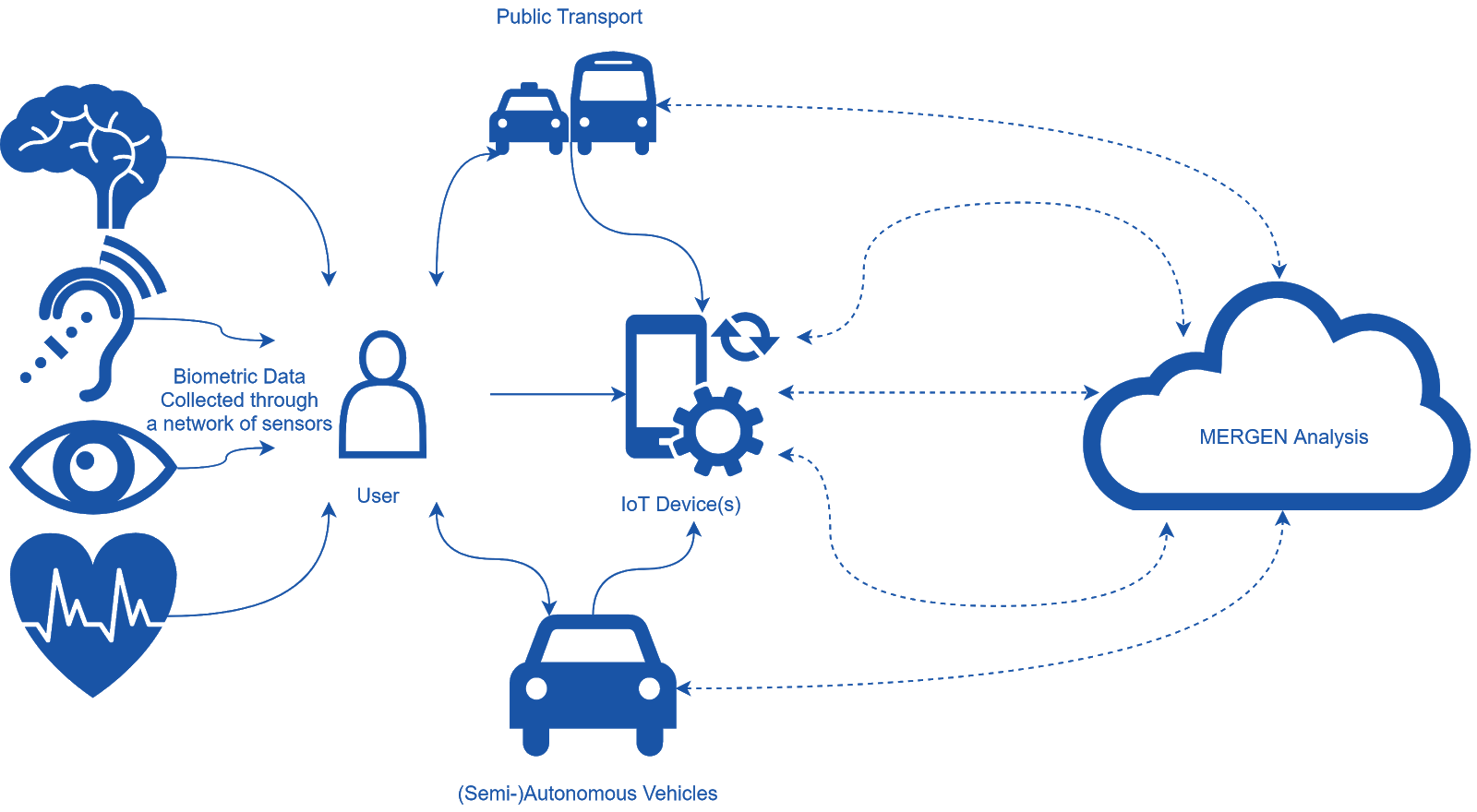MERGEN – Multi-purpose biometric Evaluation Research tool Grounded in Emerging Network technologies

MERGEN is a project in which we try to better understand by what factors, and how, remotely operating drivers are affected by their surroundings and situations. The work revolves around gathering physical data to understand the psychophysiological connection between the activities of the driver and their cognitive load and stress levels.
As we as a society are moving toward a future in which autonomous vehicles will roam the streets, we need to prepare for the transition from the current homogeneous traffic to the heterogeneous traffic including both conventional and autonomous vehicles in the near future. During the transition period, there will be remotely operating drivers who will control autonomous vehicles which have gotten themselves in situations which are either not safe or possible for the vehicle to get itself out of by itself. The idea is that one driver (from hereon “operator”) will monitor and, when needed, control these vehicles. But how are the drivers affected by this new way of controlling the vehicles? Research has been done on how long a conventional commercial driver can drive without causing a risk for their surroundings, but how do the cognitive load and stress levels differ between conventional and remotely operated vehicles?
That is one of the questions this project aims to answer. By developing a research method and tool to collect psychophysiological information, and using it to collect extensive data, it will be possible to derive by what factors, and how, a driver is affected by certain situations. By using machine learning methods it will eventually become possible to gather knowledge on how long, depending on these factors, an operator should be allowed to operate before becoming a risk for the safety of its surroundings.
The project is funded by ITRL and started in the fall of 2019. The project partners in the reference group are: Ericsson, Scania and Trafikledning Arlanda.

